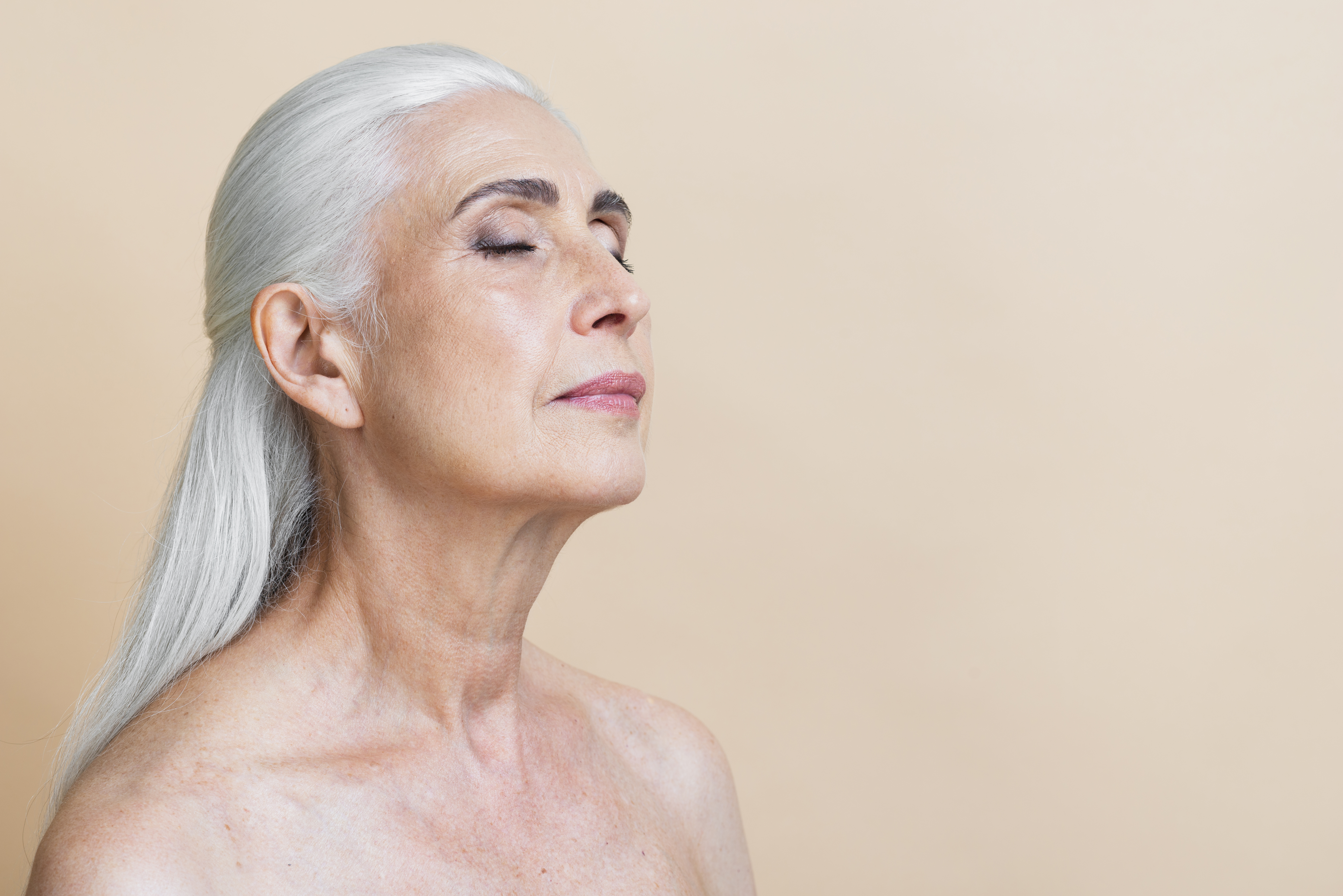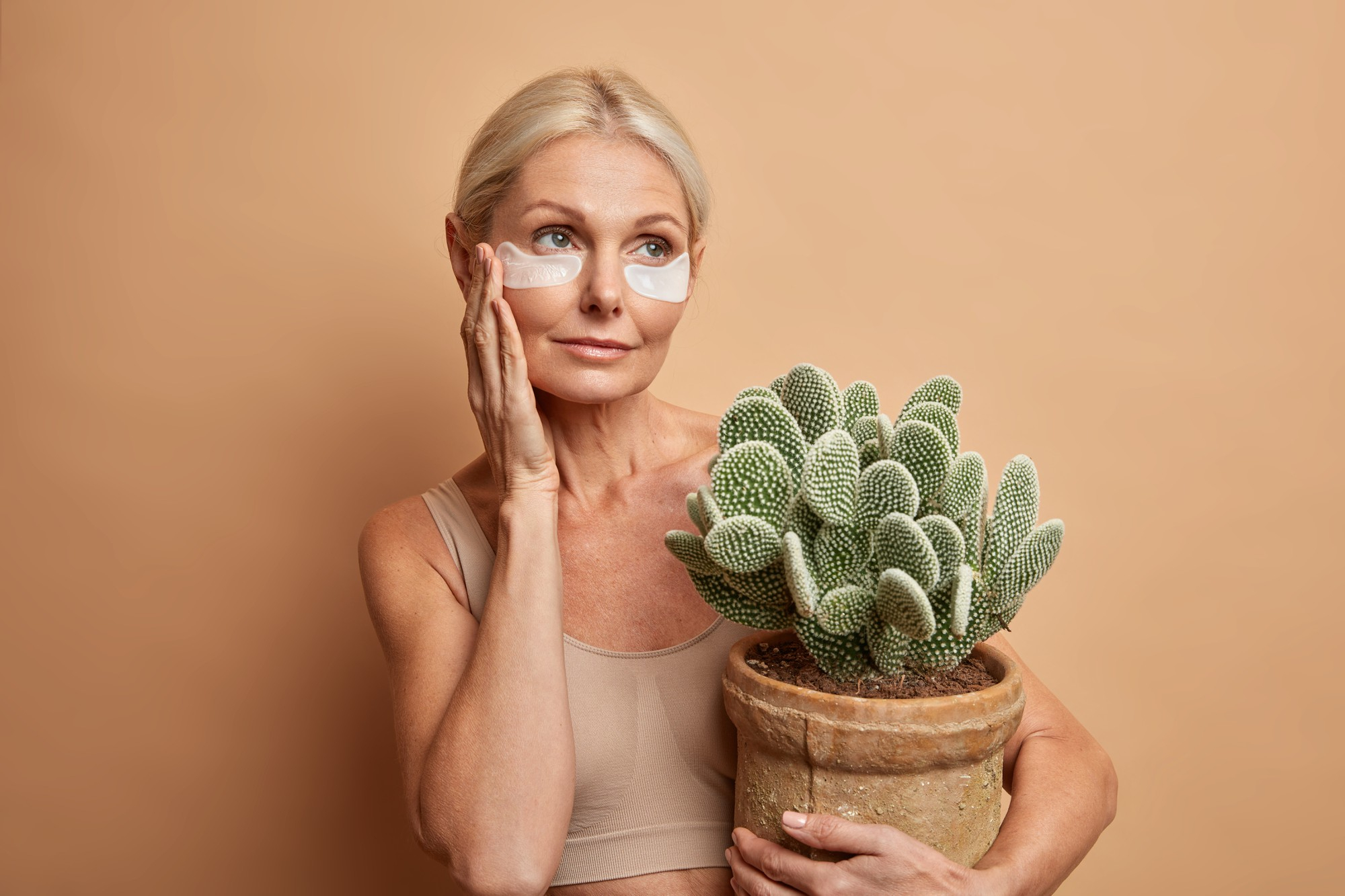
How Does Aging Affect the Skin?
Aging naturally alters the skin, resulting in wrinkles, dryness, thinning, and a loss of elasticity. Factors like sun exposure, pollution, stress, poor diet, and hormonal shifts accelerate these effects. While aging can’t be stopped, a healthy lifestyle, proper skincare with SPF, antioxidants, and moisturizers, along with professional treatments like chemical peels or laser therapy, can help maintain youthful, healthy skin and slow visible signs of aging.
Aging is a natural process that affects every part of our body, and the skin, being the largest organ, is also affected. As time passes, we face both internal and external changes. If we understand these changes well, we can manage aging more effectively and maintain the healthy appearance of our skin.
Today, in this blog, we will explore how aging affects our skin.
You may also like to read: "11 Proven Remedies for Melasma Treatments at Home"
What is Aging?

Aging is a natural biological process in which the body’s cells gradually lose their ability to function and regenerate efficiently. Over time, this leads to visible and internal changes, such as wrinkles, slower healing, and reduced elasticity, which affect the overall appearance and health, particularly in organs like the skin.
Signs of Aging on Skin
As we age, the skin undergoes several changes.
-
Skin Thinning:
The basal cell layer slows cell production, resulting in the thinning of the epidermis and dermis (the layers of skin), which makes the skin more prone to wrinkles and a crepey texture.
-
Reduced Collagen and Elastin:
It causes sagging, especially under the eyes and along the jawline. Wrinkles often form in areas of repeated movement, like around the eyes and mouth.
-
Age spots:
Age spots form when pigment-producing cells (melanocytes) increase and cluster together, especially in areas frequently exposed to the sun, leading to dark patches commonly seen on hands, face, and arms.
-
Dry Skin:
As we age, the number of oil and sweat glands in the skin decreases, resulting in reduced natural moisture. This leads to dryness, making the skin more sensitive, rough, and prone to itching.
-
Fragile Blood Vessels:
As skin ages and thins, blood vessels become more fragile, making them prone to breaking easily. This can result in visible red lines or bruising, especially on sun-damaged or sensitive areas.
Also Read: "5 Best Sunscreens for Oily Skin This Summer: Dermatologist Approved"
Skin Conditions Linked to Aging
As we age, along with the natural signs of skin aging, certain skin conditions become more common. These include
-
Seborrheic Keratosis: which appears as benign, brown, wart-like growths.
-
Solar Keratoses are rough, scaly, inflamed patches that typically develop on sun-exposed areas like the nose, cheeks, and hands; they carry a risk of turning into squamous cell carcinoma.
-
Bowen’s Disease presents as slow-growing, scaly patches and is considered a pre-cancerous condition linked to sun exposure.
-
Skin Cancers, such as basal cell carcinoma, squamous cell carcinoma, and melanoma, increase with age, requiring regular monitoring and prompt medical evaluation.
10 Causes of Aging Skin
1. Structural Changes
-
Thinning of the epidermis weakens the skin’s protective barrier and increases transparency.
-
A decrease in subcutaneous fat and oil gland activity results in drier skin and easier bruising.
-
The breakdown of collagen and elastin in the dermis leads to reduced firmness and the formation of wrinkles.
2. Cellular Changes
-
As we age, skin cells like fibroblasts and melanocytes become senescent and release harmful substances that break down collagen, causing wrinkles and fine lines.
-
Sunlight and pollution generate ROS that damage vital skin proteins, while sugar triggers glycation, making collagen stiff and weak.
-
UV rays damage DNA over time, and chronic low-level inflammation known as inflammaging further weakens the skin’s structure, slows healing, and accelerates visible signs of aging.
3. Hormonal Changes
-
Estrogen decline after menopause leads to rapid collagen loss up to 30% in five years, slowing skin cell renewal and making the skin thinner, drier, less firm, and more prone to wrinkles. Dr. Robinson notes,
“Post menopause, skin will be thinner and less elastic. Dryness is another major concern.”
4. Sun Exposure (Photoaging)
-
Sun exposure, especially UV rays, accelerates skin aging by breaking down collagen and elastin fibers.
-
This leads to wrinkles, dark spots, and a leathery texture is commonly known as photoaging.
5. Pollution
-
Pollution exposes skin to harmful environmental toxins that produce free radicals, unstable molecules that damage skin cells and break down collagen and elastin.
-
Over time, this accelerates aging, causing wrinkles, dullness, and loss of skin firmness.
6. Lack of Sleep
-
Lack of sleep disrupts the skin’s natural repair processes, slowing down regeneration and recovery.
-
This results in dullness, dark circles, and more pronounced fine lines, making the skin appear tired and aged.
7. Stress
-
Stress causes the body to release hormones that increase inflammation and oxidative damage in skin cells.
-
This accelerates aging by breaking down collagen, leading to wrinkles, dryness, and uneven skin tone.
8. Smoking
-
Smoking decreases oxygen and essential nutrients reaching the skin, impairing its ability to heal and regenerate.
-
This speeds up collagen breakdown, leading to premature wrinkles, dullness, and a loss of skin elasticity.
9. Poor Diet
-
A poor diet high in sugar causes glycation, where sugar molecules bind to collagen, making it stiff and brittle.
-
This weakens the skin’s elasticity, leading to sagging, wrinkles, and a rough texture.
10. Dehydration
-
Dehydration reduces the skin’s moisture levels, causing it to look dull and feel dry or tight.
-
This lack of hydration highlights fine lines and wrinkles, making aging signs more noticeable.
Core Skincare Routine

-
Sun Protection: Use daily broad-spectrum SPF to prevent sun damage
-
Topical Retinoids & Antioxidants: They boost collagen production, speed up cell turnover, and protect against harmful free radicals.
-
Moisturizers: Moisturizers with hyaluronic acid, ceramides, and glycerin keep skin hydrated and calm irritation.
-
Exfoliation: Gentle exfoliation with AHAs or BHAs removes dead skin cells, enhancing radiance.
-
Lifestyle: It includes a balanced diet, avoiding smoking, getting enough sleep, managing stress, and regular exercise supports skin health from within.
Professional Treatments
Dermatologists provide advanced treatments to combat skin aging. Procedures like
-
Chemical peels, laser therapy, microneedling, and platelet-rich plasma (PRP) stimulate collagen production and improve pigmentation issues, enhancing skin texture and tone.
-
Injectable treatments such as fillers and Botox help restore lost volume and smooth dynamic wrinkles caused by facial movements.
-
Thread lifting is a minimally invasive procedure that uses dissolvable threads to lift and tighten sagging skin, stimulating collagen production for a firmer, more youthful appearance.
These interventions work together to rejuvenate the skin, offering a youthful and refreshed appearance.
Learn about: "9 Powerful Health Benefits of Cucumber, Nutrition Facts & Best Uses"
In The End
Aging skin results from a combination of molecular breakdown, cellular changes, environmental exposure, and lifestyle choices. Although we cannot halt the aging process, we can improve how our skin ages by protecting it from the sun, using effective skincare, adopting healthy habits, and seeking professional treatments, helping our skin remain healthy, strong, and radiant over time.
If you are seeking professional consultation regarding skin aging treatment or any skin-related concerns, you can consult with Pakistan’s top dermatologists near you by visiting the website www.apkamuaalij.com. This platform connects you with expert dermatologists for reliable and personalized skincare advice and treatment options. For a quick consultation, dial 042 3238 0001 and book your doctor's appointment through Apka Muaalij, the best telehealth platform in Pakistan.
FAQs (Frequently Asked Questions)
When do hormonal changes affect the skin the most?
In the 40s–50s, especially during menopause, when estrogen drop.
Why is healing slower?
Thinner skin, reduced blood flow, and slower cell regeneration.
Can aging skin be reversed?
While aging cannot be fully reversed, treatments can significantly improve its appearance.
How often should I apply sunscreen?
Apply sunscreen every two hours when exposed to sunlight.
Do wrinkles only appear due to aging?
No, wrinkles can also result from sun damage, smoking, and repetitive facial movements.
When should I start anti-aging skincare?
It’s best to start preventive skincare in your mid-20s to early 30s.
Are natural remedies effective for aging skin?
Some natural remedies can support skin health, but are less potent than clinical treatments.
